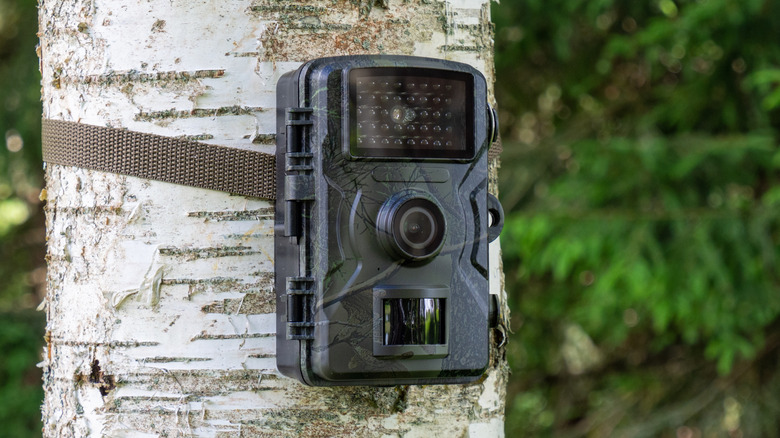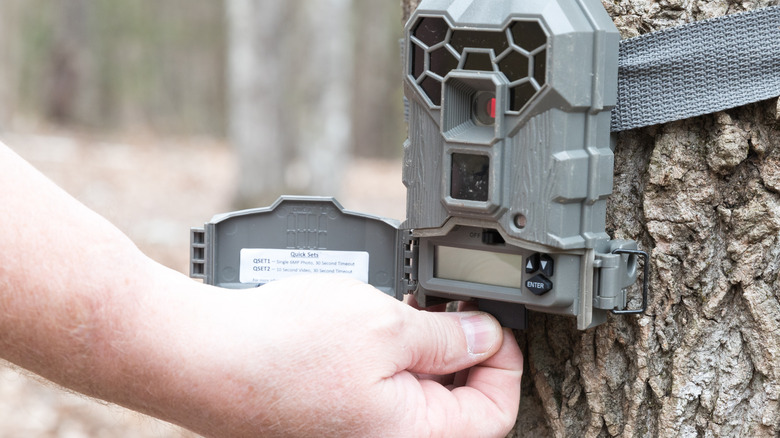These States Have Banned Hunting Trail Cameras - Here's Why
A trail camera is a device designed to take pictures or video of wildlife as they pass through the area. Often strapped to a tree, these cameras can withstand all manner of weather conditions and are motion-activated, storing images on either a memory card or transmitting them to another device like a smartphone wirelessly. They aren't just something you can put up anywhere you want, though. Places like Utah and Nevada have trail camera restrictions during hunting season, while Arizona has made them illegal for any hunting purposes. Other states, like Delaware and Kansas, have outright banned their use on any public lands, period.
High-tech devices have been creating controversy in the outdoor community as of late, and it isn't just around trail cameras. Another recent dust-up involves some government decisions around the use of drones for hunting. With trail cameras specifically, questions around privacy and whether a trail camera is an ethical tool for hunting (fair chase) have spurred some agencies into action.
While some states have enacted bans against using trail cameras, it's important to point out that these restrictions only apply to public lands. If you own private land, these regulations do not apply to any devices you install on your property.
Delaware received complaints about trail cameras from hunters themselves
Delaware banned recreational use of trail cameras in its state parks and state forests. Among many reasons listed for this decision, a few included several complaints from hunters. These hunters described situations where an individual who installed the trail camera would essentially take ownership over that area, excluding others. Basically, the sight of a trail camera on public lands was becoming a symbol that another hunter had already staked out this spot, which goes against the whole notion of a public space.
One of the other issues hunters expressed against the use of trail cameras to Delaware's Department of Natural Resources and Environmental Control and Department of Agriculture was the disruptive effect of continually checking these trail cameras for images. While some advanced devices can send images wirelessly, many trail cameras require that you physically go to the device and retrieve the memory card in order to see what's captured. However, unless moving slowly and methodically, humans are a loud disturbance in the woods. Those hunters regularly trudging into the forest to check or move their trail cameras were spooking wildlife and spoiling the hunt for others.
The argument against a ban of trail cameras for hunting
Whether you agree with some of these states in restricting trail cameras or not, they remain a valuable scouting tool and a source of great wildlife images. A cellular trail camera is just one example of useful gadgets to consider for hunting season, but you should check your state laws before taking it onto public land. Many hunters depend on these devices to help monitor the animal populations, nearby predators, and capture specific details such as antler growth. Of course, like any tool, these trail cameras can be misused. However, some argue that the idea that using a camera is somehow unethical, as it violates the principles of a fair hunt, is an insult to responsible hunters.
There have been some alternatives to these trail camera bans suggested that might provide a better compromise for everyone involved. Some of the ideas presented include a mandate that every trail camera feature a personal ID and set a limit on how many cameras each hunter can install. Others have proposed that perhaps in places like Kansas, instead of a complete ban, trail cameras could be used only during the off-season, and would need to be removed weeks before hunting season began.


